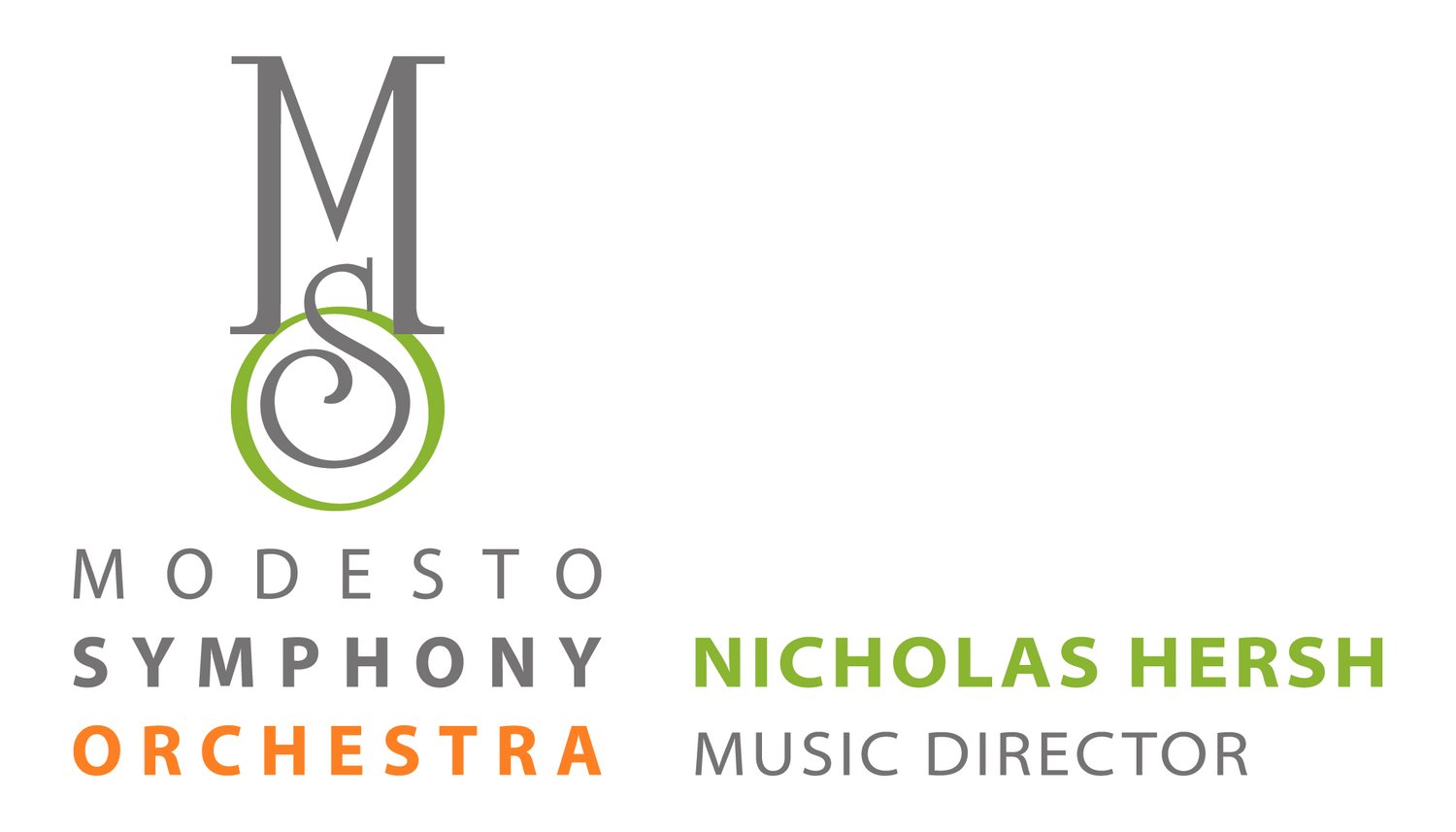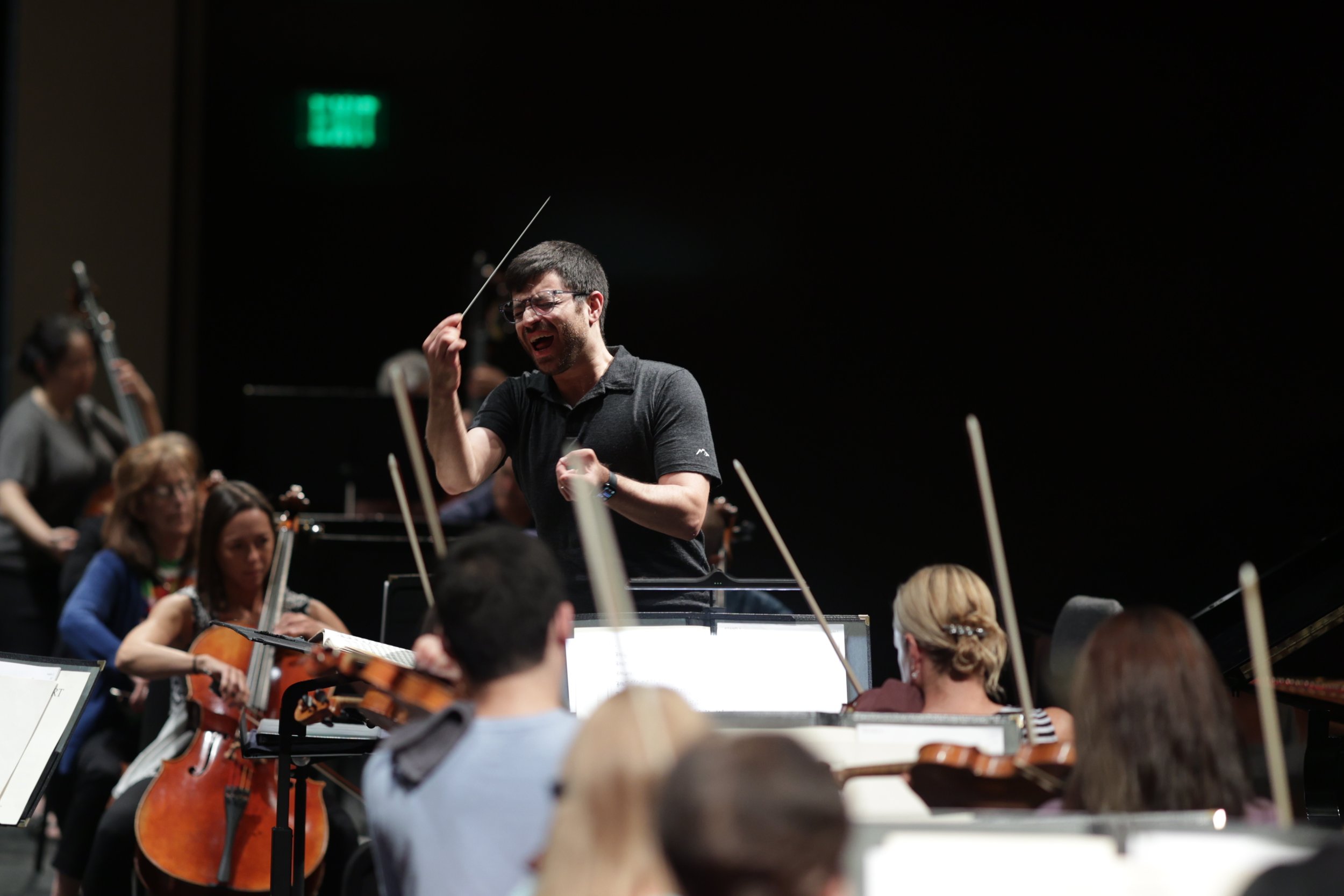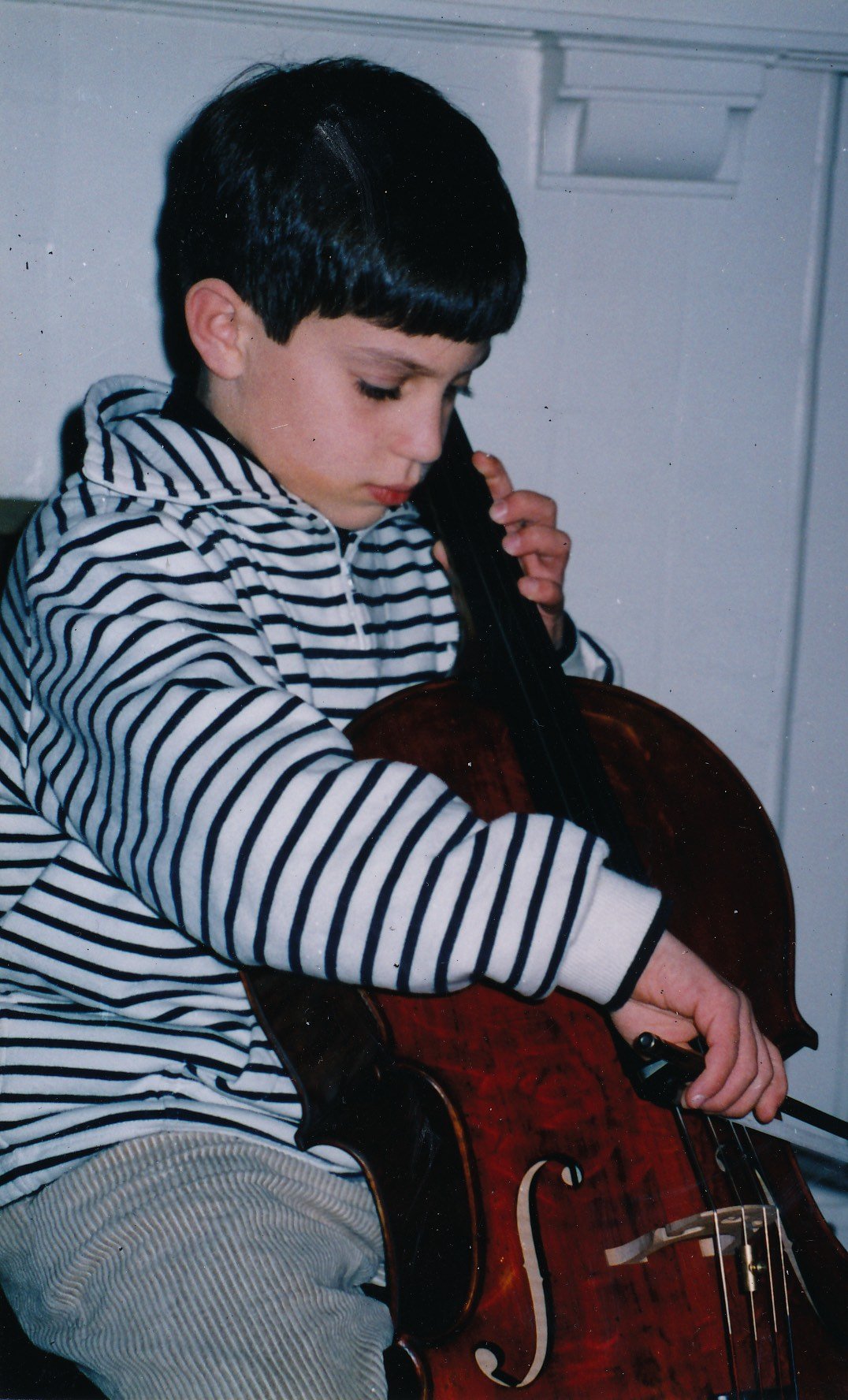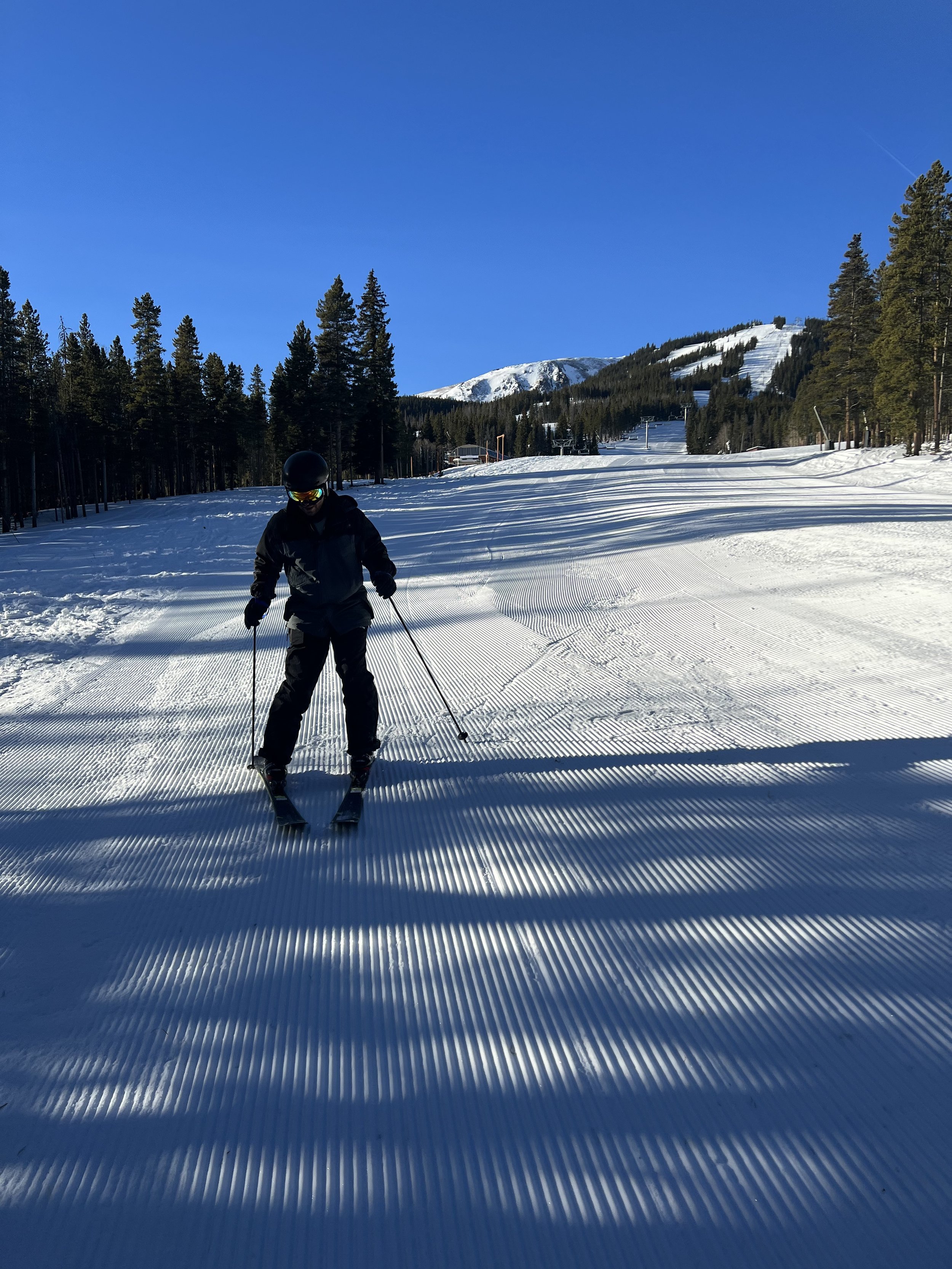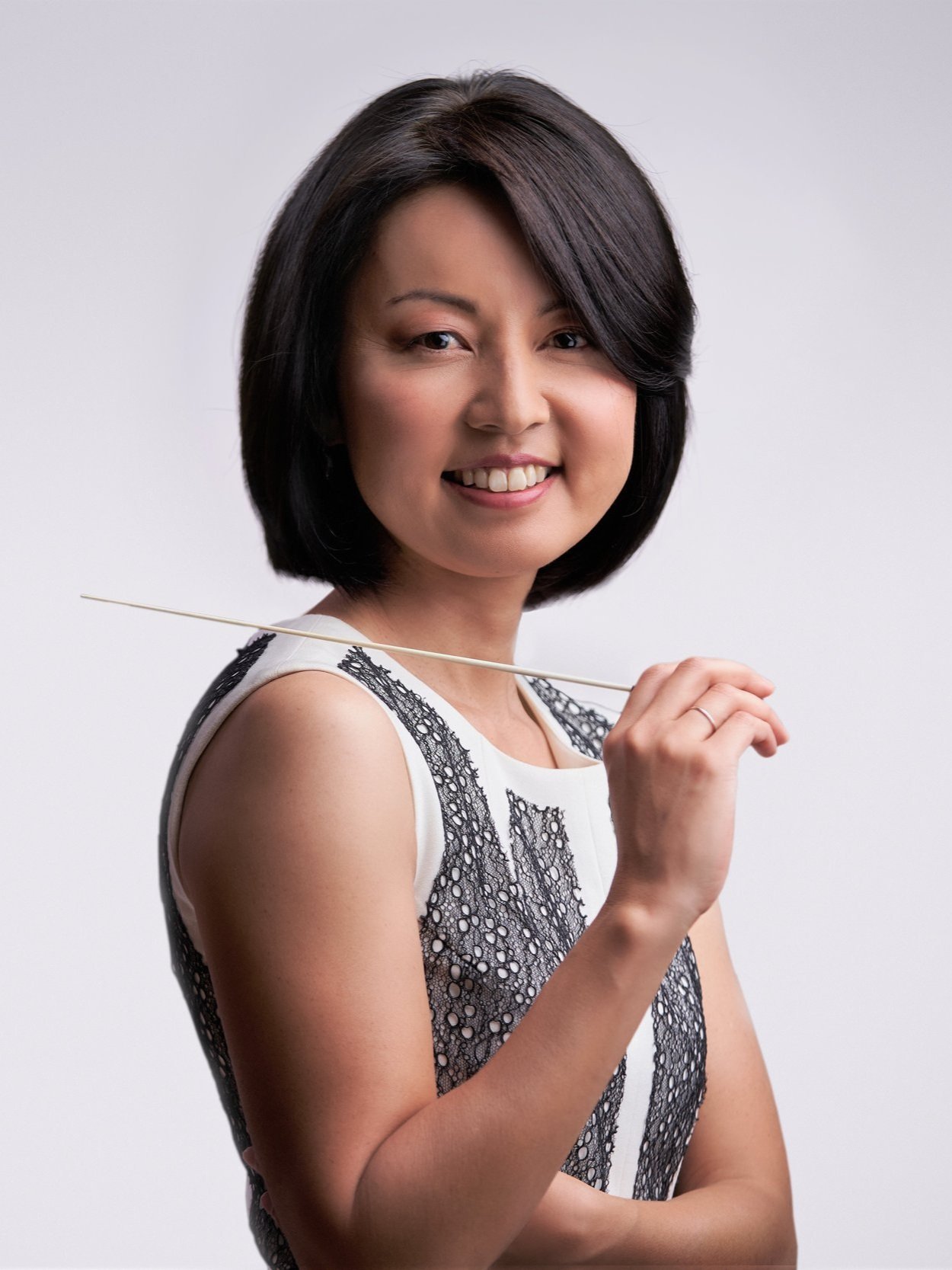Meet MSYO Music Director Elisha Wells
Creating Magic in the Music Room
From discovering her own passion for music as a student to now creating a warm and supportive space for others, MSYO Music Director Elisha Wells’ approach goes beyond teaching the notes on the page. She fosters an environment where young musicians not only grow their musical skills but also gain important life lessons along the way.
MSO: How did music impact your life and what inspired you to be a music educator?
Elisha Wells (EW): Growing up, I was a church pianist at the age of nine. My mother drove me to church services, weddings, funerals, and other events until I could drive myself. As a teenager, I also sang in a country/rock/polka band while playing the piano and trumpet. We were called “Broken Promise” (not the best wedding band name…) and we traveled far and wide to play for weddings and parties. I also was the drum major of my high school marching band and sang in the church choir from ages five to 18. These rural Texas musical opportunities were wonderful and impactful, but I always knew there was more music to experience. So, while I didn’t have elite musical training in Texas, I strived for my personal best at everything and said “yes” to a variety of musical experiences that each shaped me to be the person I am today.
My life completely changed after hearing the sound of an orchestra and the inspiration for becoming a music educator came from a deep connection to “the magic in the room.” I never played in an orchestra until I was 18 years old and attending college. As a young child, I thought that I was going to be a concert pianist, but over the years, I began to play horn and fell in love with the experience of playing in orchestras. I knew that this was the music I’d been missing all my life. I realized how impactful my orchestra conductors were, so I studied and observed everything they did, hoping to be like them someday. My love for achieving my personal best as a performer is what inspired me to be a music educator. There is nothing better than encouraging young people to do their best, and seeing them reach and exceed their goals
MSO: What do you most enjoy about making music with an orchestra?
EW: I often think of a concert set from start to finish, like a large Rand McNally paper road map, the ones we all used before iMaps. I think of it as a journey, from the very first thought I have when thinking of repertoire, to the very first rehearsal, all the way to the last note of the performance. Sometimes the journey takes us through steep mountains and over bumpy roads. The most important time during that process is the journey, or the rehearsals. The concert is a gift, both to the audience and to the performers. I guess the answer to that question is: I enjoy every second that I’m able to make music with an orchestra. At the end of each concert, I feel as though we have all accomplished a great task together, and it’s the greatest feeling!
MSO: What is the value of music education and how does the MSYO impact our community?
EW: The Modesto area and regional cities offer a first-class music education experience in the school districts. We encourage and support MSYO students to participate in their school music programs, and we believe that MSYO is an enhancement to what they are already receiving in their school programs. When our school music programs succeed, we also succeed! Music education teaches the whole individual, not just academically or physically. An orchestra is a place where students learn self-discipline, how to multi-task like experts, how to be vulnerable and brave, how to care for others and be good citizens, and so much more. These students go out into society having finer social skills, critical thinking capabilities, and are able to function as productive members of any community.
When we hear a professional symphony play beautiful music, we enjoy listening, but most of us don’t think, “Wow, they must have worked so hard to sound that great!” When students play a successful performance, it’s all the more inspiring because they’ve worked to achieve that goal while learning their instruments and growing their musicianship, and that’s what makes it also 1,000 times more rewarding! Music education is desperately needed in our society. The appreciation and understanding of the arts, in general, produce humans that are more understanding, empathic, and compassionate toward others. We need that more than ever in the world!
“The concert is a gift, both to the audience and to the performers…
…I enjoy every second that I’m able to make music with an orchestra. At the end of each concert, I feel as though we have all accomplished a great task together, and it’s the greatest feeling!”
MSO: What do you hope students will take away from being in the MSYO?
I hope our students take so many things from their experiences with MSYO. A few of them are musical excellence, a deep love for music making, a sense of gratitude and appreciation for the gift of music making, and a sense of how important it is to nurture our music community, be good citizens, work hard, and be kind.
